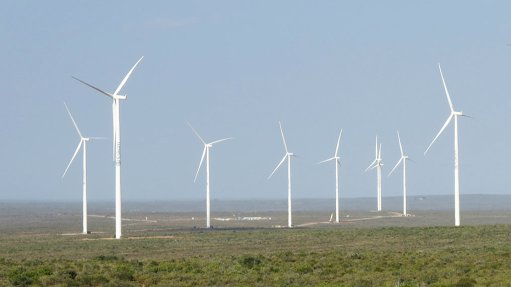Manufacturing support
The Department of Trade, Industry and Competition (dtic) on April 4 released an information notice extending an invitation to submit a substantiated application for its Manufacturing Support Programme (MSP). According to the dtic, applicants are welcome to contact it directly so that its officials can provide guidance on how to complete the application or claim forms. No consultants are required.
The MSP is an incentive designed to grow and develop the manufacturing sector through investment in new or expansion manufacturing projects that will create and sustain employment, encourage transformation and promote localisation. The incentive is available to South African-registered entities engaged in manufacturing activities as defined in the Standard Industrial Classification 3.
This includes the manufacturing of food products, beverages, tobacco products, textiles, clothing, leather goods, wood, cork, paper, paper products, refined petroleum, nuclear fuel, chemicals, chemical products, rubber and plastic products, nonmetallic mineral products, base metals, fabricated metal products, machinery and equipment, electrical machinery and apparatus, telecommunication equipment and apparatus, watches, clocks, transport equipment, and furniture. As to which of these products South Africa currently manufactures is, of course, another story.
The objectives of the MSP are to promote operational efficiency and competitiveness in new or expansion manufacturing projects; encourage transformation through supporting enterprises owned by black persons, women, the youth and people with disabilities; create and sustain employment; and promote localisation through the use of locally produced inputs or raw materials and machinery directly related to production.
These objectives will be supported through the following components of the programme: competitiveness improvements; green technology and resource efficiency improvements; and production capacity expansion or new projects.
The benefit provided for ‘capital expenditure and raw materials’ includes a reimbursable grant of up to 20% of projects. The maximum grant offering is R10-million over a two-year investment period, with the last claim to be submitted within six months after the final approved milestone. The dtic will provide a 30% reimbursable grant for projects that are 51%-owned and controlled or managed by women, and/or the youth and/or persons with disabilities.
As for the benefit that is provided for ‘competitiveness improvements costs’, the objective is to improve the competitiveness of manufacturers through the improvement of processes, products, quality standards and related skills development, registration and validation requirements and licensing, technology transfer, waste management, energy efficiency and improvement through the use of business development services.
The competitiveness improvement grant related to consultant fees/costs may not exceed R1-million. The dtic adds that “all applicants must comply with the mandatory requirements in paragraph 4 of the MSP guidelines and must adhere to legislative requirements governing the sector”.
The release does not provide some details, which are covered under the heading ‘Mandatory Conditions’. These are that the applicant must be a registered legal entity in South Africa in terms of the Companies Act, 2008; be compliant with the Broad-Based Black Economic Empowerment (BBBEE) Act, 2003, and the Codes of Good Practice on BBBEE 2019; must achieve a minimum BBBEE Level 4 Contributor status, and submit a valid BBBEE certificate of compliance or a sworn affidavit at the application and claim stages; be a registered taxpayer in good standing; adhere to sectoral minimum wage and legislative requirements and compliance requirements governing the sector; demonstrate that at least 50% of the inputs will be sourced from South African producers and at least 10% of the inputs will be sourced from black South African producers in particular and/or government departments, State-owned entities or similar government institutions; where inputs cannot be produced locally, applicants may source these from suppliers based outside South Africa. In this regard, full details of establishment points and details of suppliers as well as indisputable evidence of the local supplier must be provided, and commencement of production must take place within 180 days after the application has been approved by the dtic.
The 'MSP Guidelines’; the ‘MSP Application Form’, the ‘MSP Claim Form’; and the ‘Local Output and Import Replacement Applications MSP’ are accessible at www.thedtic.gov.za/manufacturing-support-programme-msp.
Article Enquiry
Email Article
Save Article
Feedback
To advertise email advertising@creamermedia.co.za or click here
Press Office
Announcements
What's On
Subscribe to improve your user experience...
Option 1 (equivalent of R125 a month):
Receive a weekly copy of Creamer Media's Engineering News & Mining Weekly magazine
(print copy for those in South Africa and e-magazine for those outside of South Africa)
Receive daily email newsletters
Access to full search results
Access archive of magazine back copies
Access to Projects in Progress
Access to ONE Research Report of your choice in PDF format
Option 2 (equivalent of R375 a month):
All benefits from Option 1
PLUS
Access to Creamer Media's Research Channel Africa for ALL Research Reports, in PDF format, on various industrial and mining sectors
including Electricity; Water; Energy Transition; Hydrogen; Roads, Rail and Ports; Coal; Gold; Platinum; Battery Metals; etc.
Already a subscriber?
Forgotten your password?
Receive weekly copy of Creamer Media's Engineering News & Mining Weekly magazine (print copy for those in South Africa and e-magazine for those outside of South Africa)
➕
Recieve daily email newsletters
➕
Access to full search results
➕
Access archive of magazine back copies
➕
Access to Projects in Progress
➕
Access to ONE Research Report of your choice in PDF format
RESEARCH CHANNEL AFRICA
R4500 (equivalent of R375 a month)
SUBSCRIBEAll benefits from Option 1
➕
Access to Creamer Media's Research Channel Africa for ALL Research Reports on various industrial and mining sectors, in PDF format, including on:
Electricity
➕
Water
➕
Energy Transition
➕
Hydrogen
➕
Roads, Rail and Ports
➕
Coal
➕
Gold
➕
Platinum
➕
Battery Metals
➕
etc.
Receive all benefits from Option 1 or Option 2 delivered to numerous people at your company
➕
Multiple User names and Passwords for simultaneous log-ins
➕
Intranet integration access to all in your organisation

















